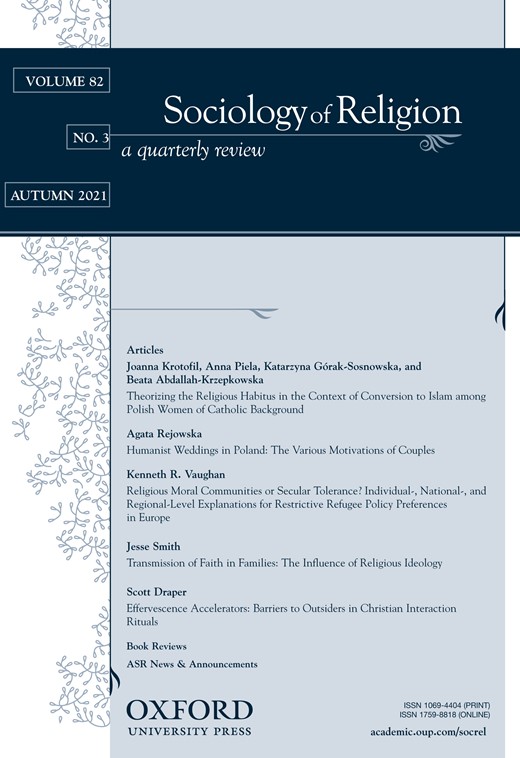-
Views
-
Cite
Cite
Jesse Smith, Transmission of Faith in Families: The Influence of Religious Ideology, Sociology of Religion, Volume 82, Issue 3, Autumn 2021, Pages 332–356, https://doi.org/10.1093/socrel/sraa045
Close - Share Icon Share
Abstract
The family and denominational factors influencing intergenerational religious transmission have been examined in a substantial body of work. Despite research identifying religious ideology as a salient aspect of American religion, however, its role in religious transmission remains unexplored. In this study, I use the National Study of Youth and Religion to test whether children’s worship attendance and centrality of faith in young adulthood differ based on whether their parents identify as religiously liberal, moderate, conservative, or none of these. I further test whether the strength of the relationship between parent and child religiosity differs between ideological groups. The primary finding is that religious transmission is stronger among children of religious conservatives than for any other group, while the other groups do not differ significantly from one another. These differences in transmission are largely explained by religious conservative parenting approaches, congregational involvement, and most importantly, more intensive religious socialization.





